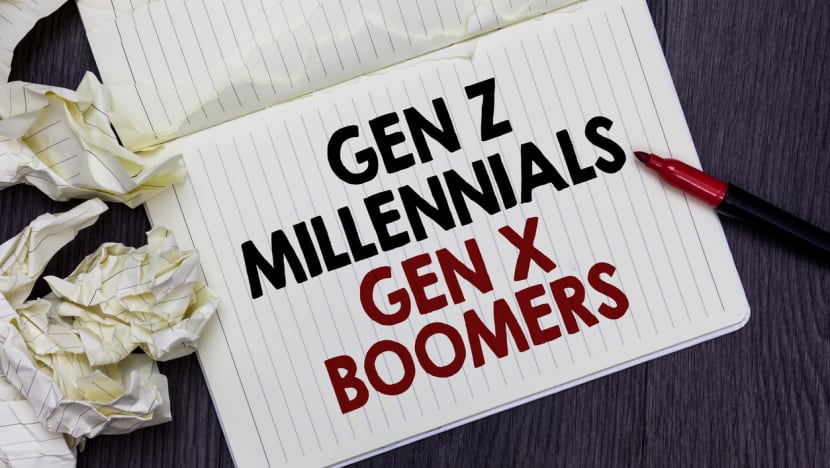Commentary: Some call us the loser generation, but weŌĆÖve survived just fine
With one foot in the past and another in the future, Gen Xers can show others how to ŌĆ£keep calm and carry onŌĆØ, says NTU lecturer┬Āand young Gen Xer Ian Yong Hoe Tan.┬Ā

To cope with the constant upheavals, Gen X is often locked in a ŌĆ£letŌĆÖs figure this outŌĆØ mode. (Image: iStock/Artur)

This audio is generated by an AI tool.
SINGAPORE: Lately, it feels like my generation ŌĆō Gen X ŌĆō is utterly doomed.
If you believe the headlines, our careers and finances are tanking; we are overlooked, overburdened, forgotten.
ŌĆ£The Gen X Career MeltdownŌĆØ, says The New York Times.┬Ā ŌĆ£The Real Loser Generation,ŌĆØ says The Economist.
ThereŌĆÖs data too to map out the middle-aged misery of those born between 1965 and 1980.
According to a 30-country poll by Ipsos, 31 per cent of Gen Xers say they are either ŌĆ£not very happyŌĆØ or ŌĆ£not happy at allŌĆØ, the most of any generation.┬Ā
And on top of that, nearly half of Gen Xers surveyed by Natixis Investment Managers feel itŌĆÖs going to take a miracle to retire securely, with the average Gen X household having squirrelled away only about US$150,000 for retirement - far less than the US$1 million figure commonly bandied about.
And yet, you donŌĆÖt hear much complaining from Gen X about being downtrodden or even deleted.
Maybe because most of us have already gotten bored with posting on social media. But the bigger reason could be that we have never stopped dealing with relentless change and disruption.
CENTREPOINT KIDS AND THE SLACKER GENERATION
The 45 to 60 age group is a relatively small cohort in Singapore; there are roughly 900,000 of us residents.
Gen X is just one of our many labels.┬Ā┬Ā
In the 1980s, young people who hung around Orchard Road were called ŌĆ£The Centrepoint KidsŌĆØ. Globally, we were also known as ŌĆ£The MTV GenerationŌĆØ - the analog pre-cursor of TikTok - which broadcast non-stop music videos during its heyday.
In the 1990s, people started calling us ŌĆ£The Slacker GenerationŌĆØ that was said to be cynical, apolitical and just fond of doing nothing.
Our best-known label came from the 1991 novel Generation X: Tales For An Accelerated Culture by Douglas Coupland, and ŌĆ£XŌĆØ referred to a desire not to be defined.
But why this desire? Was it our natural reaction to growing up in an environment of increasingly rapid change? ┬Ā┬Ā
MULTIPLE LEARNING CURVES
First, we have gone through many market upheavals. Many 1965-ers entered the workforce around the 1987 Black Friday stock market crash. Younger Gen X members then encountered the 1997 Asian financial crisis, the 2000 burst of the dot-com bubble, the 2008 global financial crisis, and the pandemic-induced stock market crash of 2020. The April 2025 market plunge (due to Trump tariffs) seemed to arrive on schedule.
Second, our world view was forced to expand when war and conflict invaded our consciousness. The 1991 Gulf War was the first heavily televised and live-broadcast war. Then, I remember sitting in a public bus watching the two World Trade Center towers in New York collapse on 9/11. In recent days, we have seen footage of Israeli strikes on Iran, Iranian strikes on Israel and US strikes on Iranian nuclear facilities.
Third, and perhaps the most disruptive of all, is how quickly technology has advanced in our lifetimes. We grew up with primitive typewriters and cassette tapes, and it has been a dizzying journey of adapting to personal computers, smartphones and then, the Internet (hands up if you remember the excruciatingly slow dial-up modem in the early years). Now, we happily embrace Generative AI apps which leapt straight out of our childhood science fiction movies.
CONSTANTLY FIGURING IT OUT
To cope with the constant upheavals, Gen X is often locked in a ŌĆ£letŌĆÖs figure this outŌĆØ mode ŌĆō quickly discarding the past to adapt to the uncertain future. Some say this is also the trait of many Gen Xers who grew up as ŌĆ£latchkey kidsŌĆØ, being left to fend for ourselves by our busy parents.
For example, if the cassette tape stopped playing in our Walkman, we had to find a pencil to untangle the noodle-y audio tape. When we started using computers, we had to figure out how to type cryptic text commands such as ŌĆ£C:\LOTUSŌĆØ and ŌĆ£CHKDSKŌĆØ to get software to work.

As we grew up, we learnt how to thumb-type on phones and replaced our scratched Compact Discs with Spotify playlists. We embraced Facebook in the late 2000s, but now, we have mostly migrated to Instagram to feel less obsolete.
We are also always learning new vocabulary. In the old days, we did not use todayŌĆÖs lexicon like ŌĆ£toxicŌĆØ or ŌĆ£mental health wellnessŌĆØ, but that did not mean we did not fight against bad bosses and stifling office culture. We began pushing for work-from-home policies and work-life balance.
Now, as people live longer and AI reshapes the workforce, we must figure out the current phase of being the ŌĆ£sandwich generationŌĆØ (yet another label!) where we provide for both aging parents and growing children.
But guess what, we will simply deal with this problem, just like the ones that came before.
Gen XersŌĆÖ economic troubles are nothing to sniff at ŌĆō I have over a dozen friends who have been laid off in the past few years. Yet, I have observed how these friends have gotten up and reinvented themselves.
And from our vantage point, we can see that every generation before and after us has their own unique set of challenges. The Boomers risk getting left behind by technological shifts. Gen Z is entering the workforce as the global order is shifting and climate change is getting worse.┬Ā
With one foot in the past and another in the future, many Gen Xers who are now in leadership, coaching and parenting roles can show others how to ŌĆ£keep calm and carry onŌĆØ. ┬Ā
Even if we are forgotten, know that we are not finished.
Ian Yong Hoe Tan is a strategic communication lecturer at the Wee Kim Wee School of Communication and Information, Nanyang Technological University. He has more than two decades of experience working in the media and technology industries. He was born in 1976, making him a young Gen Xer.













